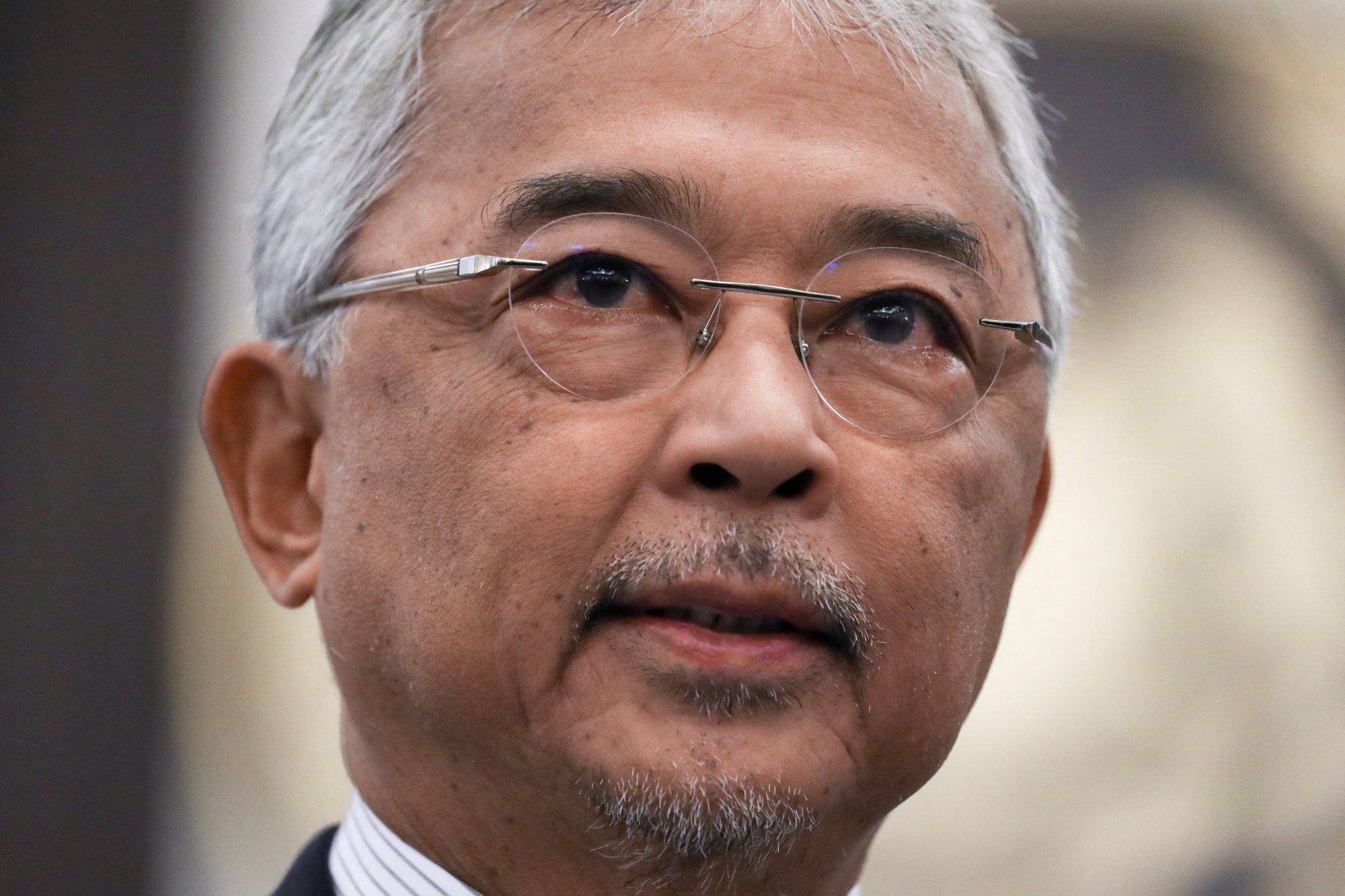Fevered speculation of an imminent pardon or a significant reduction in the 70-year-old Najib’s sentence was stirred by revelations that the pardons board met with the country’s former king, Sultan Abdullah, on the last day of his reign on Monday to decide on the matter.

Under Malaysian law, the power to pardon lies with the monarch, on the advice of the pardons board appointed by him.
When asked if the announcement would be coming sometime this week, Minister Zaliha said: “God willing, we hope so”.
Malaysia to rule on royal pardon for jailed ex-PM Najib over role in 1MDB scandal
Malaysia to rule on royal pardon for jailed ex-PM Najib over role in 1MDB scandal
Other ministers have played a similarly straight bat over the incendiary issue of Najib’s jail term, with Home Minister Saifuddin Nasution Ismail – who is in charge of prisons – saying that it was “discussed” informally in the cabinet meeting on Wednesday, but it was not his place to comment.
“We discussed it, but we understand that this is under the jurisdiction of the [pardons board],” he said after the cabinet meeting.
On the same day, communications minister and government spokesman Fahmi Fadzil told the media not to “jump the gun” and wait for an official announcement.
“If not, it may lead to various reactions, and, in my view, it is important to maintain professionalism when issuing statements,” he said at an unrelated press conference.
This came after local newspaper Utusan reported on Tuesday, citing unnamed sources, that Najib had been given a full pardon by the board – triggering a wave of anger among the Malaysian public, many of whom feel betrayed by the prospect of seeing the former leader walk free after serving just over a year in prison for corruption.
The newspaper later retracted the news and apologised.
Singapore’s CNA, meanwhile, reported that Najib’s sentence had been halved from 12 years to six – similarly quoting unnamed sources who are supposedly senior officials in the Malaysian government.
Reacting to a possible pardon, legal activist Lim Wei Jiet said such a move would irreversibly tarnish the country’s criminal justice system and Malaysia’s standing as a nation that upholds the rule of law.
The message is simple: it’s OK to steal, as long as you are from the political elite
“The message is simple: it’s OK to steal, as long as you are from the political elite,” Lim said.
The multibillion-dollar scandal at 1MDB, the state fund founded in 2009 just months after Najib became prime minister, was described by the US Department of Justice as the largest kleptocracy case it had ever dealt with.
Jho Low and the Wolf of Wall Street: how Malaysian businessman ‘hooked up DiCaprio’
Jho Low and the Wolf of Wall Street: how Malaysian businessman ‘hooked up DiCaprio’
The scandal led to the spectacular downfall of Najib, the British-educated one-time political star, after his Umno party suffered its first-ever electoral loss in Malaysia’s 2018 elections.
Najib, whose wife Rosmah Mansor faces separate corruption charges unrelated to 1MDB, has denied any wrongdoing saying he was a victim of a scheme marshalled by Jho Low and others. He still faces at least three other trials linked to 1MDB.
At least US$4.5 billion is believed to have been funnelled out of the fund, according to the US Department of Justice and Malaysian investigators.


